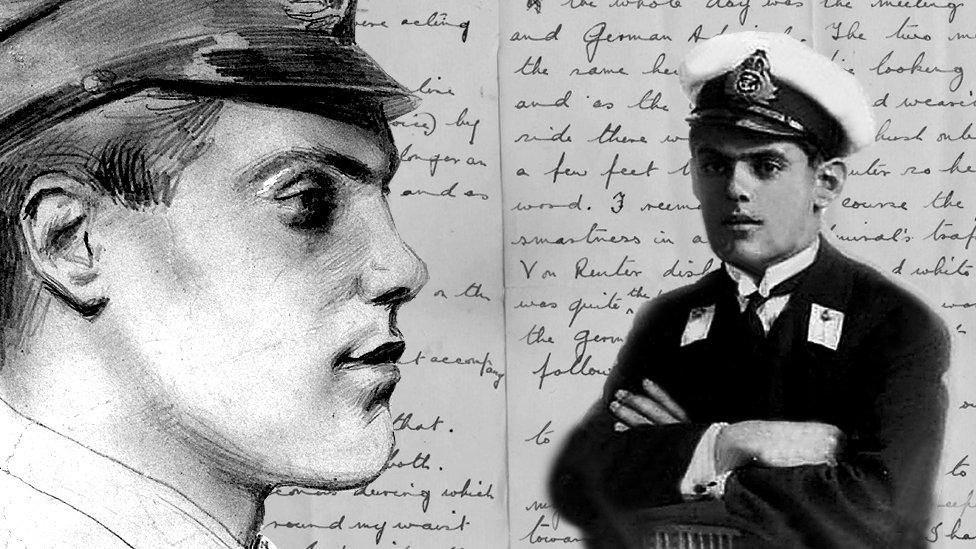WW1 German grave mistakes corrected in Orkney cemetery
- Published
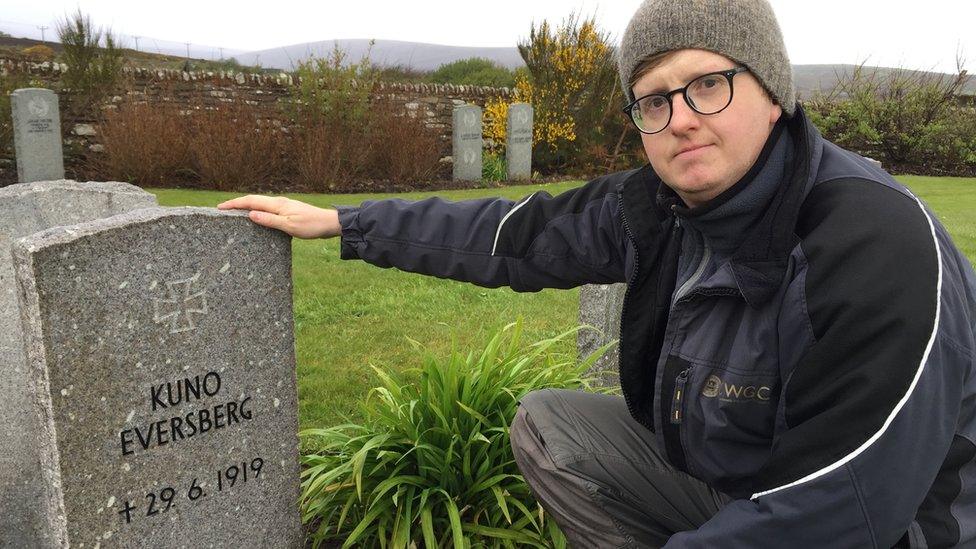
Robert Ross, from the Commonwealth Graves Commission, was alerted to the mistakes
The headstones of German sailors killed at the end of World War One have been replaced after mistakes were discovered in their inscriptions.
Researchers found the original memorials in Orkney's Lyness cemetery were inaccurate, incomplete or both.
The men died after being shot by Royal Navy personnel when the High Seas Fleet was deliberately scuttled in Scapa Flow in June 1919.
A series of events and exhibitions is underway to mark the centenary.
Robert Ross from the Commonwealth War Graves Commission (CWGC) told BBC Radio Orkney, external they were grateful to Scapa 100 - the local group set up to co-ordinate commemorations - for alerting them to the first mistake.
Kuno Eversberg's headstone initially recorded that he had died on 21st June 1919 - the date the German admiral ordered his men to sink their own ships.
The German sailor had, in fact, been shot and died several days after that. It's not clear why the mistake was made.
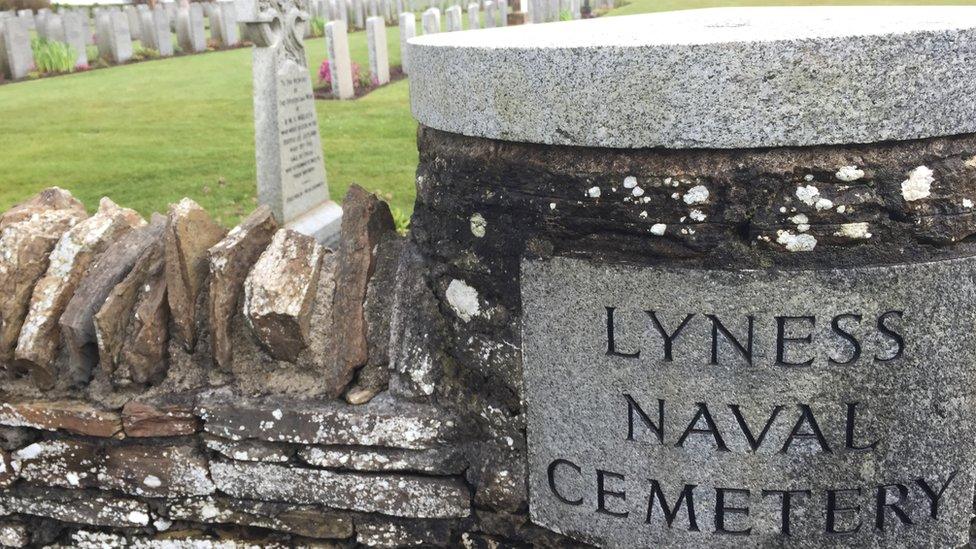
The cemetery contains more than 650 casualties of the first and second world wars.
The discovery prompted the CWGC to liaise with their German counterparts, the Volksbund Deutsche Kriegsgräberfürsorge (VDK).
As a result of that research, they discovered a further four German headstones in Lyness also contained mistakes.
A memorial to Hermann Dittmann had omitted his first name.
And the names of Max Aumüller Friedrich Beicke and Albert Haushälter had all been mis-spelled.
Albert Haushälter's date of death was also wrong.
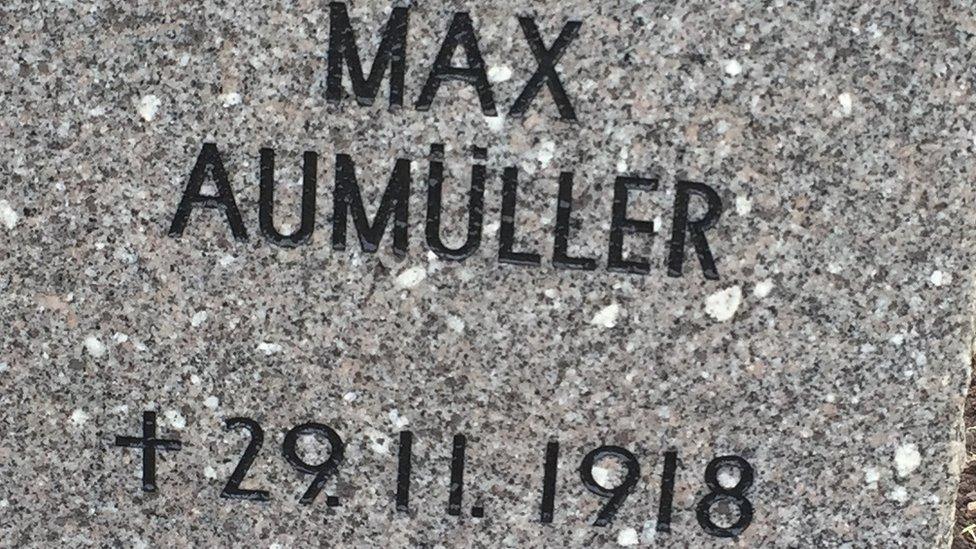
Max Aumüller's name was mis-spelled initially but has now been corrected
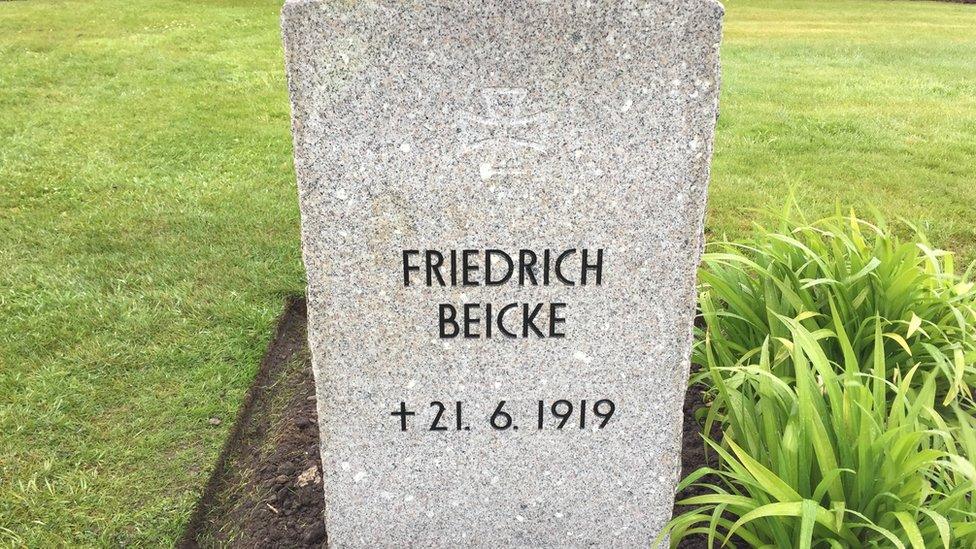
Friedrich Beicke's was also wrong on his original headstone
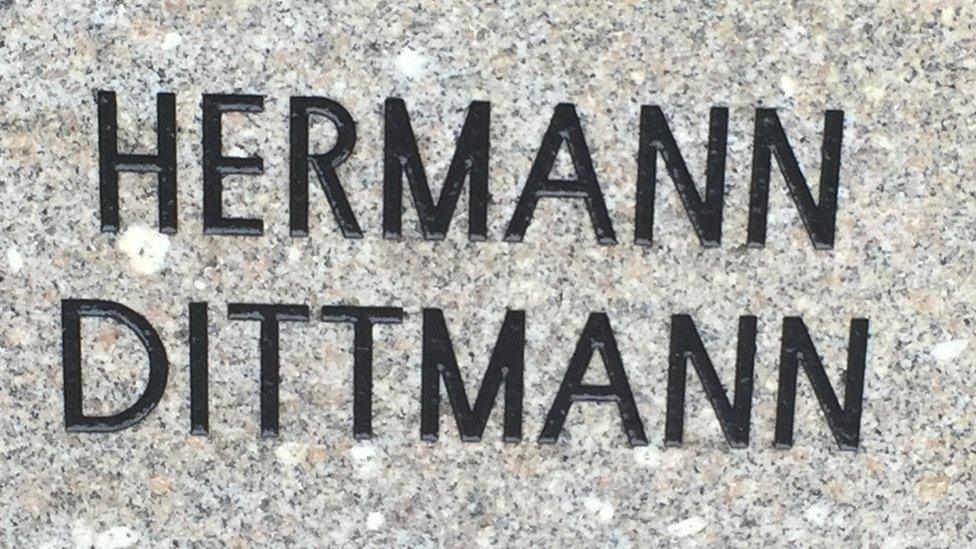
The original memorial only included Hermann Dittmann's surname
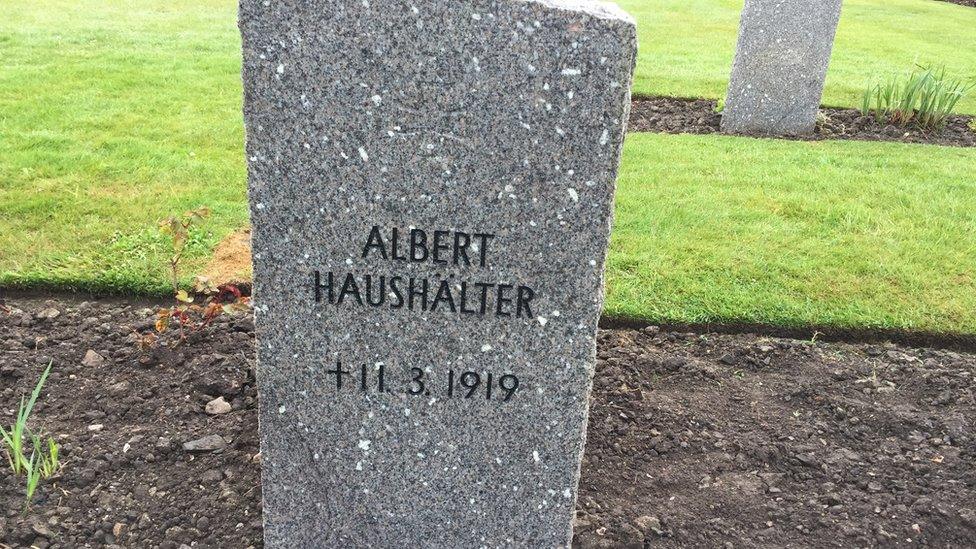
Two mistakes were found on Albert Haushälter's memorial - the spelling of his name, and the date of his death. Both have now been corrected.
Robert Ross said the CWGC is always keen to work with anyone who's found a mistake on a headstone.
"It doesn't matter where they're from, or who they were, we treat every casualty with the same amount of respect, and equality.
"If they're German, if they're from Britain, or Canada, wherever they're from, they're all treated the same.
"So for us to be able to do this along with the German War Graves Commission is, of course, really important leading up to the centenary of this event."
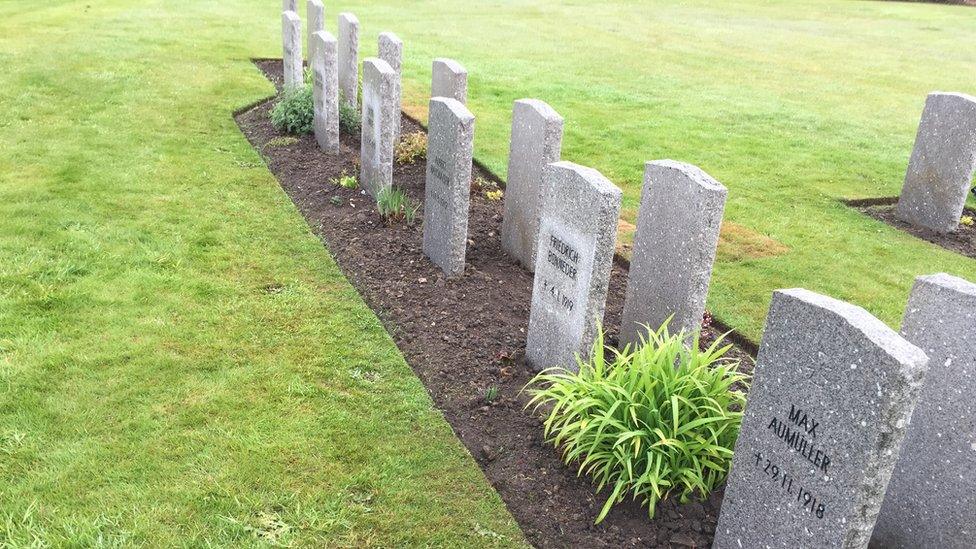
The German graves are grouped together in one corner of the Lyness cemetery.
It's thought the men were all shot in the panic and confusion of the fleet being scuttled - perhaps because they had refused to obey British orders to go back on board their vessels to stop them sinking.
The German ships had been interned in Scapa Flow after surrendering in the Firth of Forth at the end of World War One.
Rear Admiral Ludwig von Reuter is believed to have given the order to sink them because he feared the Allied powers, or the British, intended to seize his fleet as war reparations.
- Published21 November 2018
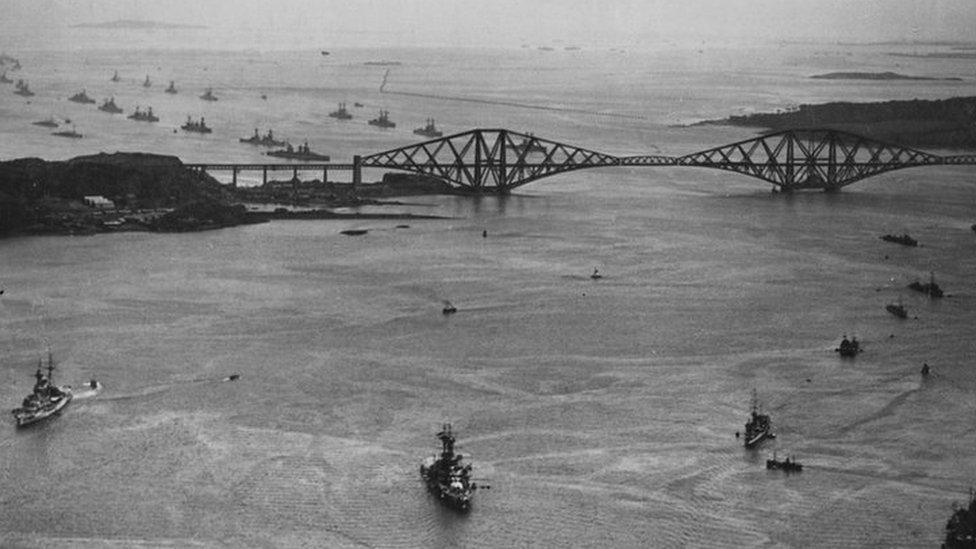
- Published1 November 2018
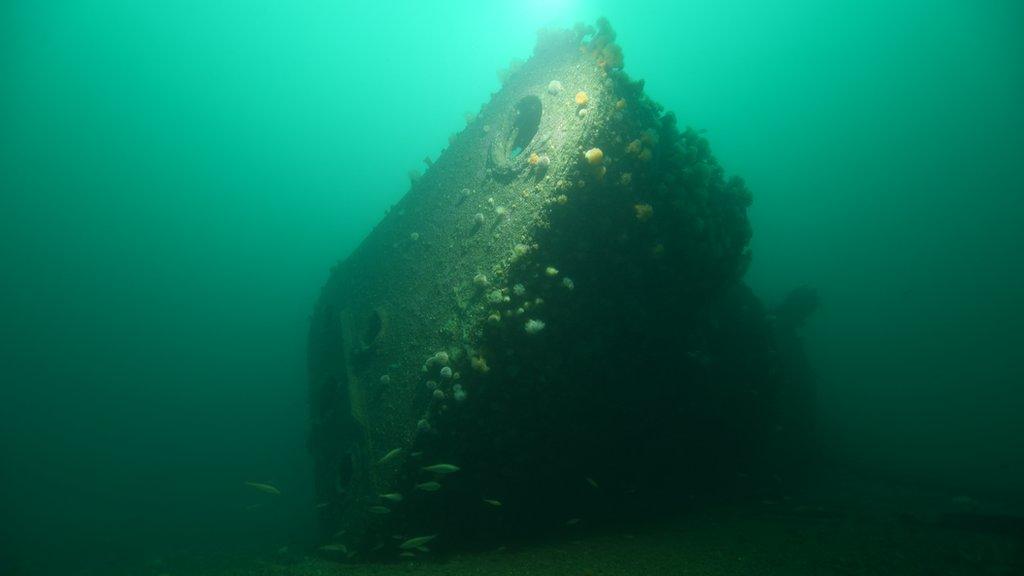
- Published16 October 2018
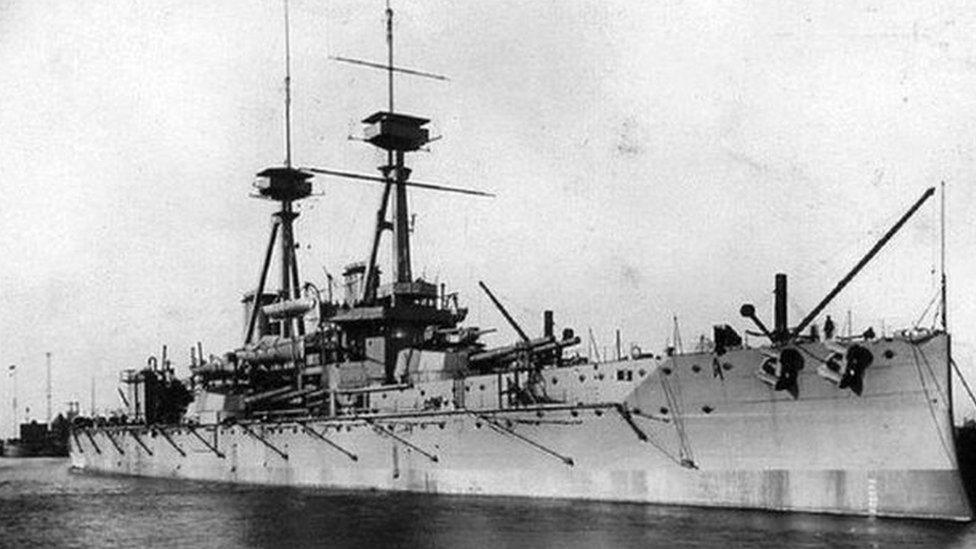
- Published19 June 2015
